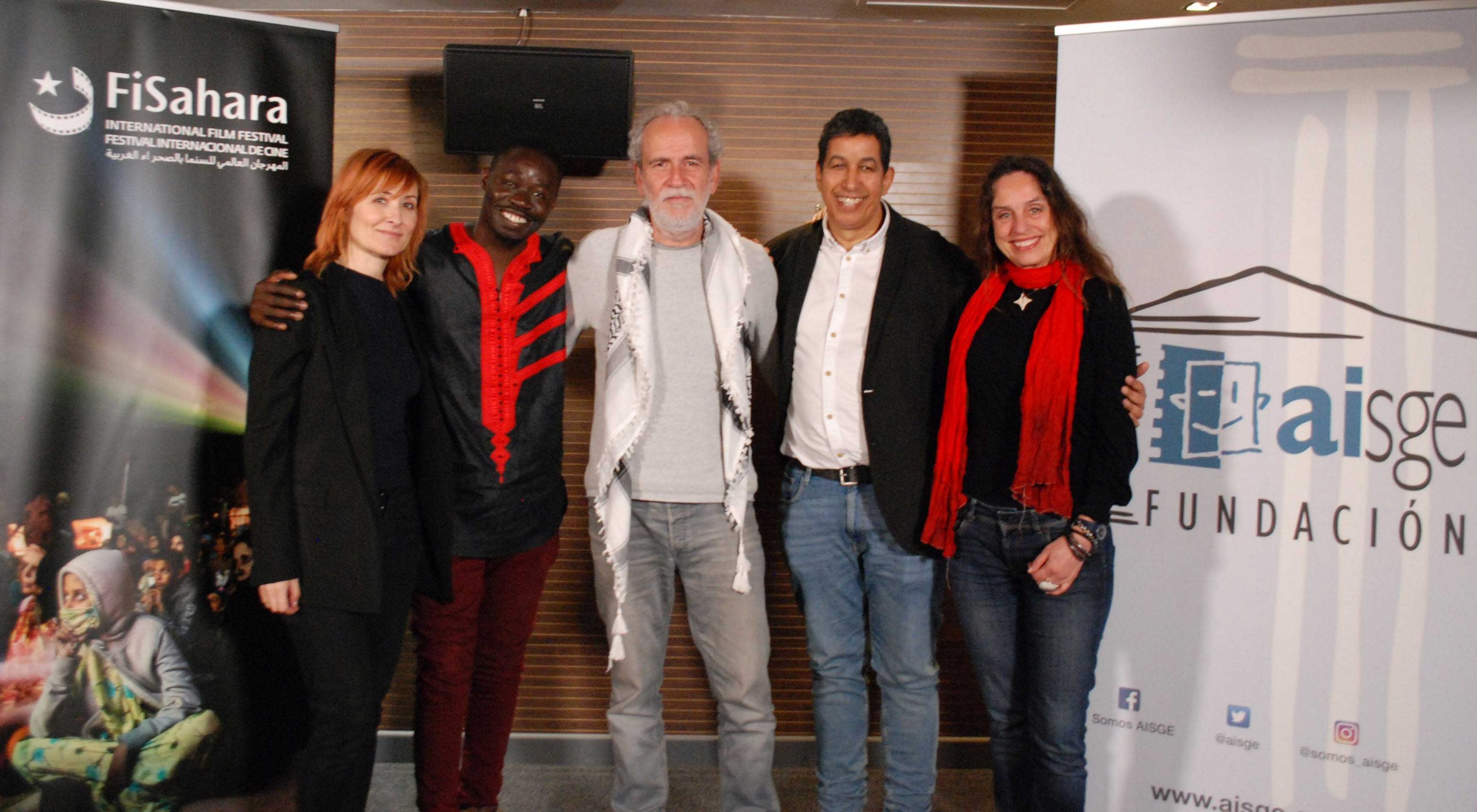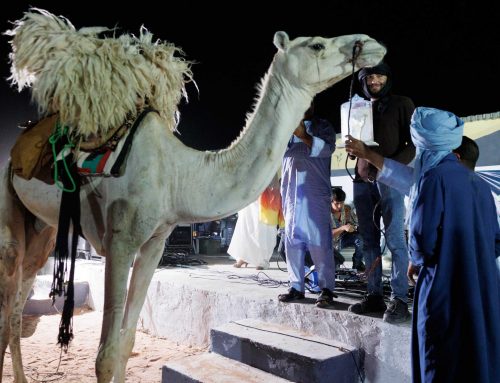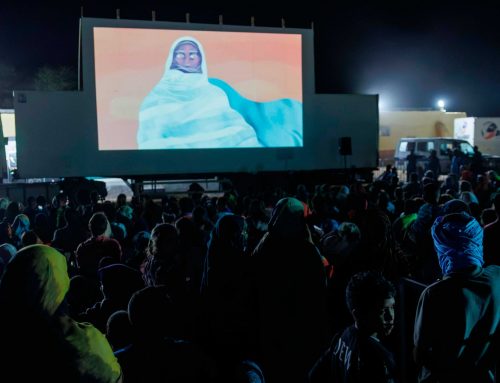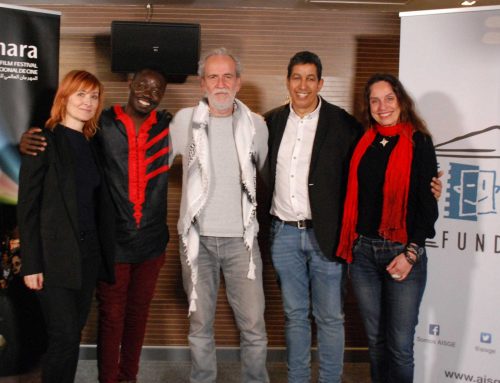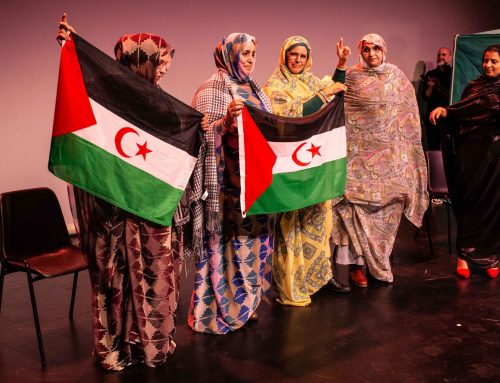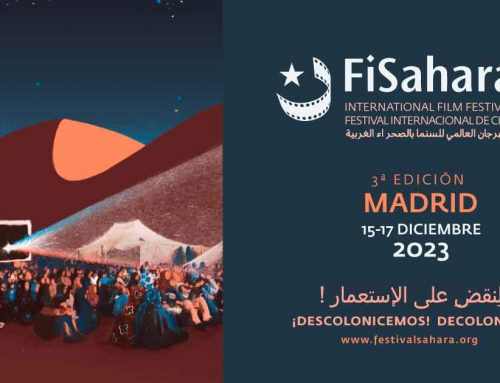FiSahara (The International Film Festival of Western Sahara) returns for its 18th edition to the refugee camps of the Sahrawi population. From April 29th to May 5th, the wilaya (camp) of Ausserd will host the festival under the theme Jaimitna Fi Cinema (Our haima in the cinema): To Resist is to Win. With the haima (tent) as the protagonist and symbol of Sahrawi identity—prohibited by Morocco in the occupied Sahara—FiSahara embraces the epic of resistance as a kind of victory and connection between different oppressed peoples, with cinema as the spearhead of cultural resistance.
As announced during today’s presentation in Madrid, throughout the week, attendees will have the opportunity to participate in screenings and thematic discussions featuring films about Western Sahara (Unsubmissive, Champs-Elysées, The time after the rain, Desert PHOSfate), Palestine (200 Meters, Roof Knocking), East Timor (Beatriz’s war), Colombia (Igualada), Puerto Rico (Resistance Street), and Algeria (Hassna), among others. Like in previous editions, the festival aims to establish new relationships and connections between Sahrawi artists, filmmakers, and activists and their counterparts in other countries and regions.
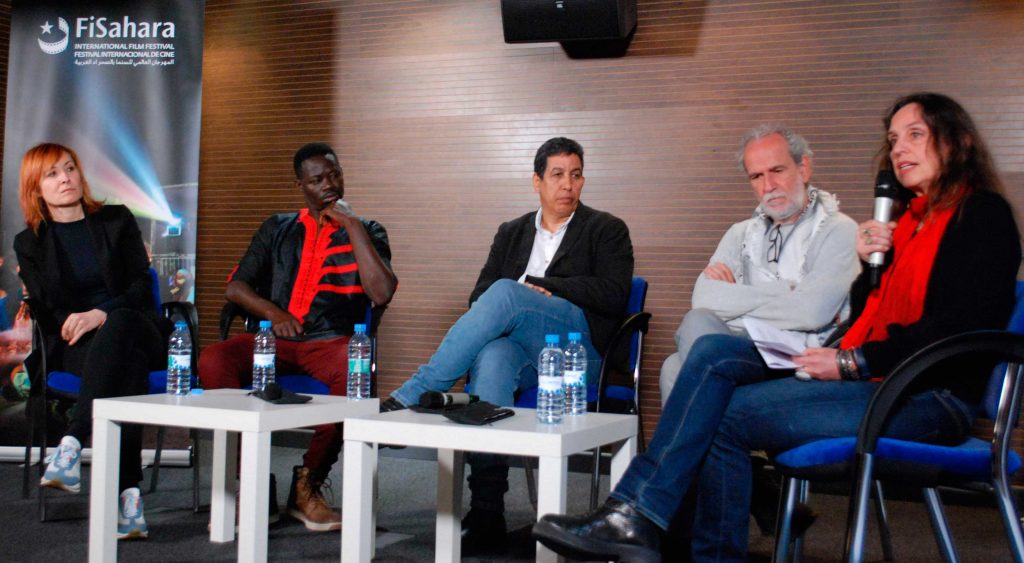
In order to address the legitimate struggles of these peoples, international personalities who link these struggles with culture and cinema will travel to the Ausserd camp, including Colombian Soraya Bayuelo, National Peace Prize winner, founder of the Montes de María Audiovisual Festival, and participant in the third Delegation of the 60 Victims who attended the Peace Talks in Havana (Cuba); Lurdes Pires, filmmaker and key Timorese activist in the independence process of East Timor who produced the first fiction film about the struggle in Timor; Puerto Rican journalist, musician, and screenwriter Milton Carrero, who turned his reports into a musical that narrates the devastation of Puerto Rico after Hurricane Maria and the popular uprisings that forced corrupt Governor Ricardo Roselló to resign; or Senegalese actor and artivist Thimbo Samb, who uses cinema and theater to raise awareness among Spanish society about racism and support the collective of young migrants making the dangerous journey from Africa to Spain in makeshift boats.
True to its commitment to FiSahara, the Spanish cultural scene will once again be very present with the screening of films such as The teacher who promised the sea or Championext and the participation of actresses Carolina Yuste and Nathalie Poza, actor Guillermo Toledo, and singer-songwriter Pedro Pastor, who will be responsible for the closing concert of this edition.
“The Sahrawi people have been resisting Spanish colonialism, Moroccan occupation, and the interests of major powers for a century and a half, aiming to end their national liberation project. Yet, they persist, preserving their identity and culture, which in itself is a great victory,” says María Carrión, executive director of FiSahara. “As a festival that has also been resisting for 20 years, this edition of FiSahara celebrates the struggles of resistance that are passed down from generation to generation, those that never surrender, with the haima as a symbol of Sahrawi cultural and identity resistance.”
Therefore, FiSahara will showcase the multimedia artistic project Jaimitna, which premiered last December at FiSahara Madrid, and it will play a leading role with its tent woven inside with the 19 melfas (traditional Sahrawi women’s dresses) of different human rights defenders from occupied Western Sahara, some of whom will be present at this edition of the festival.
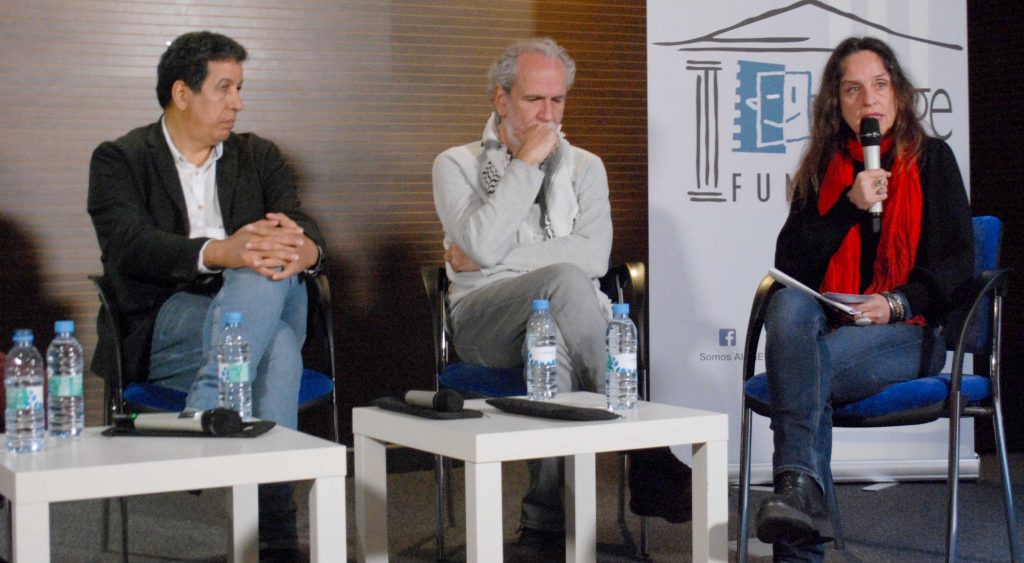
Abdulah Arabi, representative of the Polisario Front in Spain, has stated that “no solution, whether in Western Sahara or Palestine, will be truly just, definitive, and lasting if the peoples suffering from illegal occupation are not taken into account.” Arabi has accused Morocco of “not being trustworthy,” pointing out that “the Sahrawi people accepted the peaceful path and Morocco has used it against us with the support of Western powers such as Spain, France, and the USA.”
Actor Guillermo Toledo has emphasized solidarity among peoples, such as the Sahrawi and Palestinian, criticizing “how the tables have been turned and the perpetrators are democrats defending themselves, while those who defend the victims are labeled as terrorists or pro-terrorists.”
Meanwhile, an emotional Thimbo Samb has shared his support for the Sahrawi cause and his excitement as an African to travel to the Sahara to show solidarity with the Sahrawi population, while Nathalie Poza has highlighted the value of FiSahara, because “it reminds us of the true essence of any film festival, which is to preserve the culture of a people and offer the industry as a window to the world for these causes.”
Roundtables on Sahrawi women, the climate crisis and resistance struggles, as well as masterclasses on the social impact of cinema
In addition to the more than 30 films (including the children’s cycle Mini FiSahara with animation shorts from Miyu Distribution and Pallasos en Rebeldía), roundtable discussions will take place to delve deeper into the themes. Moderated by journalist and head of the Jaimitna project, Asria Mohamed, human rights defenders on the front lines in occupied Sahara, such as Elghalia Djimi, Mina Baali, Salha Boutenghiza, and Mahfouda Lekfir, among others, will firsthand narrate the generational struggle for freedom and the challenges faced by women.
The award-winning Sahrawi artivist and director of the film Desert PHOSfate, Mohamed Sleiman, will address the impact of the climate crisis on the Sahrawi people and the greenwashing carried out by Morocco in Western Sahara alongside climate activists Yaguta El-Mohtar, Asria Mohamed, and Taleb Brahim. In the panel titled To Resist is To Win moderated by the host and director of the American program Democracy Now! Amy Goodman, winner of the Right Livelihood Award (Alternative Nobel), filmmakers and human rights defenders from Palestine, Colombia, East Timor, Puerto Rico, and Western Sahara will delve into the theme of this edition by showcasing the small and large victories achieved in resistance struggles. Goodman, who survived the Dili massacre in Timor in 1991 to tell the world about it, and who infiltrated occupied Western Sahara with her team in 2016 to shoot a documentary, also represents resistance journalism.
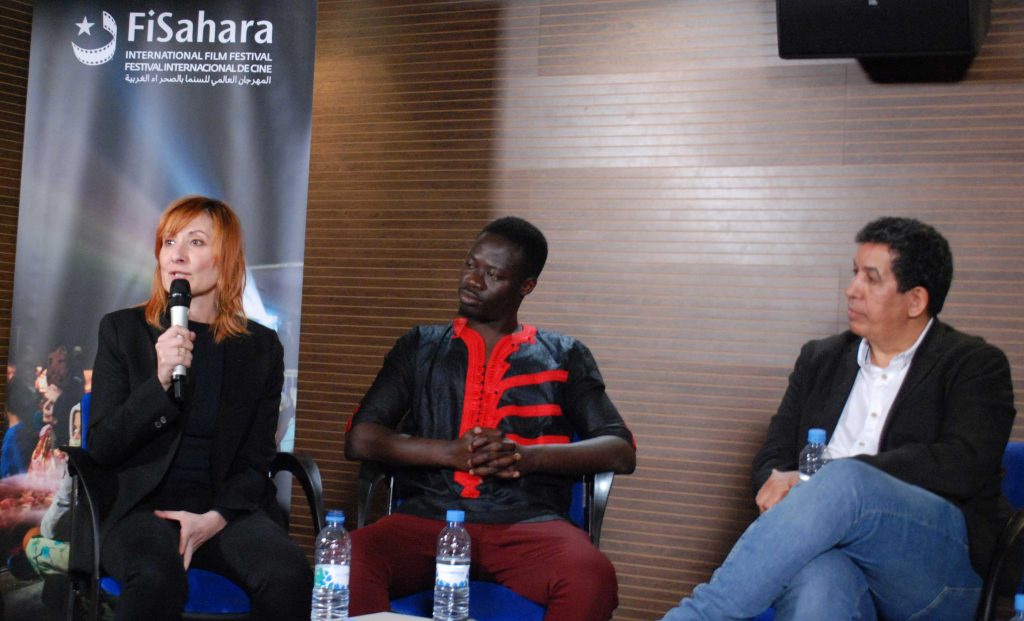
Alongside the roundtables, there will be a Masterclass on cinema and its social impact featuring Julie Nederkoorn from the Movies that Matter Festival in The Hague; Soraya Bayuelo from the Montes de María Audiovisual Festival (FAMMA) in Colombia; actor and artivist Thimbo Samb; Sahrawi cultural manager Galia Yahia, current Director of Culture for the Dajla wilaya; and the Timorese filmmaker Lurdes Pires.
A cultural melting pot of a people in resistance
As in previous editions, FiSahara will host LeFrig, the traditional camp led by women showcasing Sahrawi customs and traditions through typical food, clothing fabrication, music and dances, traditional games; an evening in the sand dunes featuring Sahrawi music groups, and a visit to the Abidin Kaid Saleh Audiovisual Training School, created by FiSahara in 2011 in the Bojador camp, from which several generations of Sahrawi filmmakers have emerged. During the screening cycle, the latest short films produced by the school and emerged from a documentary filmmaking workshop will be presented. And for the first time, FiSahara brings a virtual reality project to the camps: Stars in the Desert, developed by Galileo Mobile in collaboration with Sahrawi experts in astronomy.

